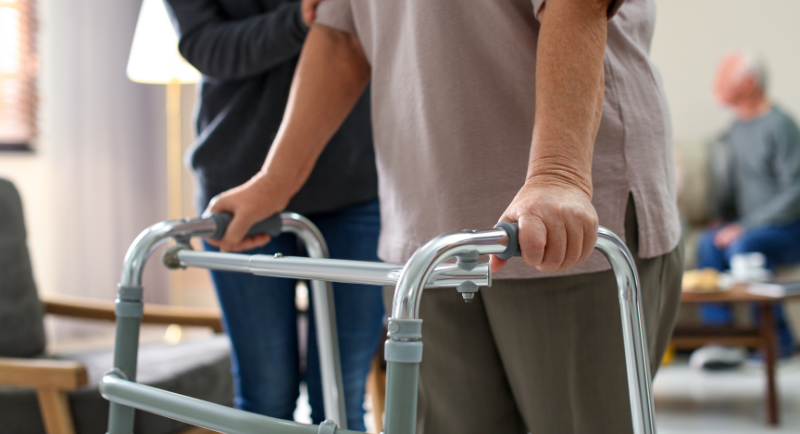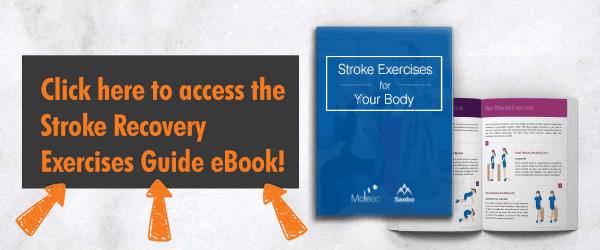

One of the hardest things for anyone to do after suffering a brain injury is re-learning how to walk again and it’s a difficult and tiring journey.
Thankfully, there are plenty of strategies to help those recovering from strokes or other brain injuries get back on their feet.
Home-based techniques make the recovery much easier but what is usually recommended by rehabilitation experts to improve walking after a brain injury?

One of the main issues about re-learning to walk after a brain injury is getting muscles strong enough to cope with the physical requirements needed to move and hold the patient’s weight.
To do this, it’s best to liaise with a physical therapist and find out what exercises help the body get used to the strain again. Usually, they will recommend doing daily basic stretches at home to help recover muscle mass. Some of these exercises include:
- Lowering and raising your foot and heel
- Performing basic squats (with support initially)
- Trying to reach up and reach down
- Squeezing a pillow between your legs
These will build up core strength in your major leg muscles and allow someone to develop enough mass to start moving unaided.

When someone has suffered a traumatic brain injury (TBI) or a stroke, their balance perception is also terribly affected which may lead to the risk of nasty falls.
Alongside treatment and physical therapy, a patient can be helped doing simple exercises to improve their depth perception. Some of these include:
- Walking in different directions
- Standing with your feet close together and further apart
- Sitting and standing in different positions
- Moving short and long distances
Trying these exercises will determine how much a patient is improving and they should only be attempted with aided devices first. As their balance improves, they can be performed unaided as their recovery progresses.

By following these key steps, stroke and brain injury patients will slowly re-learn how to do basic movements such as walking unaided.
You can also look into investing in using a wheelchair or quad frame to help a patient slowly regain mobility with confidence before moving onto more advanced exercises and rehabilitation plans.
Using these plans in conjunction with regular specialist therapy sessions and medical treatment will help get brain injury patients walking again without suffering any unnecessary setbacks.
You can also find more bonus information about stroke recovery exercises by reading our fantastic eBook.
Take it one step at a time!
Follow us on social media!
Contact: [email protected]
This document does not constitute the practice of medical consultation nor medical advice. Always seek the advice of your treating physician and/or specialist. If you suspect that you are experiencing symptoms of stroke, call for an ambulance immediately.


